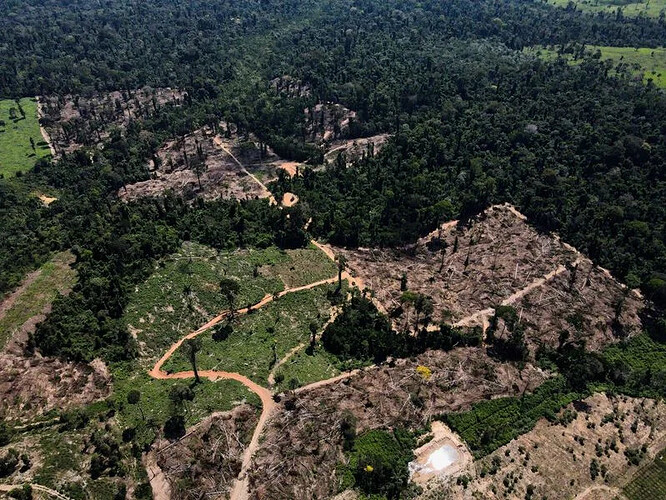SAO PAULO (Reuters) - The world is moving too slowly to meet pledges to end deforestation by 2030, with the destruction worsening in 2022, according to a report by a coalition of environmental organizations released on Monday.
More than 140 countries - representing the vast majority of the world’s woodlands - pledged at the 2021 United Nations climate summit in Glasgow to halt and reverse forest loss and degradation by the end of the decade.
Yet deforestation increased by 4% worldwide in 2022 compared with 2021, as some 66,000 square kilometers (25,000 square miles) were destroyed, the annual Forest Declaration Assessment report said. That means the world is 21% off track to end deforestation by 2030.
“The world’s forests are in crisis. The opportunity to make progress is passing us by,” said Erin Matson, a senior consultant at environmental group Climate Focus.
The report was conducted by a coalition of civil society and research organizations who assess progress towards pledges to eliminate deforestation by 2030.
That includes the Glasgow pledge and the 2014 New York Declaration on Forests, which saw a shorter list of countries as well as dozens of the world’s biggest companies make a similar commitment.
Efforts to preserve old-growth tropical forests — prized for their dense carbon content and rich biodiveristy — are 33% off track, with 4.1 million hectares lost in 2022, according to the study.
In a news briefing, the researchers involved in the report stressed that the annual $2.2 billion in public funds channeled to projects to protect forests every year is a fraction of the investment needed.
The study also looked beyond deforestation to analyze forest degradation, with one researcher estimating the area of degraded forests to be much larger than the area of global deforestation.
Drivers of forest degradation include logging activities, livestock grazing, and road construction, according to Climate Focus.
But some parts of the world are making progress, said Franziska Haupt, a lead author and managing partner at consultancy Climate Focus.
Haupt said that some 50 countries are on track to end forest loss, with Brazil, Indonesia, and Malaysia showing drastic reductions in deforestation.
“Hope isn’t lost,” Haupt said. “These countries set clear examples that others must follow.”
Brazil, which is responsible for around 30 percent of the world’s deforestation, has seen a significant turnaround with a new government which is much more committed to fighting deforestation than the last, said a WWF Brazil representative during the news conference.
"This showcases what could happen when countries with good laws and the books actually invest in enforcing them,” said Darragh Conway, lead on rights & governance for the Forest Declaration Assessment.
(Reporting by Steven Grattan; Editing by Jake Spring, Katy Daigle and Chizu Nomiyama)
